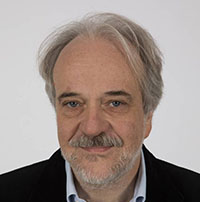

May 2023

Abstract:
I am interested in the representation and exploitation of genotypic and phenotypic knowledge about disease and pathophysiology. A great deal of information is now available from public databases, patient electronic health records and formal models of physiology which can be used to discover new knowledge, and further our understanding of the etiology and management of disease. Mobilising this knowledge, which may either be symbolic or quantitative, is a critical challenge, This involves the development and application of new tools in artificial intelligence, knowledge representation, and formal ontology. I am now applying these semantic approaches to the integrate patient electronic health record data with external sources of knowledge, with the aim of supporting clinical decision making and diagnosis , patient management, disease etiology and new approaches to therapy. I will discuss the different types and structures of data available in electronic health records, and show examples of how we can use combined semantic analyses to stratify populations and to identify key phenotypic factors responsible for allocating patients into groups and predicting their response to treatment.
Bio:
Professor Paul Schofield FRSB. He is a Biochemist by training, and a Professor in Biomedical Informatics at the department of physiology, development and neuroscience in the University of Cambridge, where he has worked since 1990. He is adjunct Professor at the Jackson Laboratory in Bar Harbor, Maine, USA, Fellow of the Alan Turing Institute and Fellow of the Royal Society of Biology. He is interested in increasing our understanding of the genotype-phenotype interplay underlying the etiology and management of human diseases. His approach is based on integrating big knowledge and data across species from patients and animal models available in public databases, EHR and formal conceptual models of physiology, and exploiting them by using semantic technologies such as ontologies and knowledge graphs with state of the art informatics such as neuro-symbolic AI methods. He has been involved in the development of bioontologies for nearly 20 years and has contributed to the development and application of widely used tools of several tools such as HPO, MPATH, GA4GH Phenopackets, DeepPVP (phenotype-based causative variant prioritization) and DDIEM (Drugs for IEMs) to support the diagnosis and understanding of rare diseases, clinical diagnosis, patient management, therapy, and disease etiology discovery. He is also involved in data and bio resource sharing initiatives, for example developing the STORE database for radiation biology with the German Federal Radiation Protection agency, and an ontology supporting FAIR data in radiation biology in collaboration with NASA and the University of Birmingham